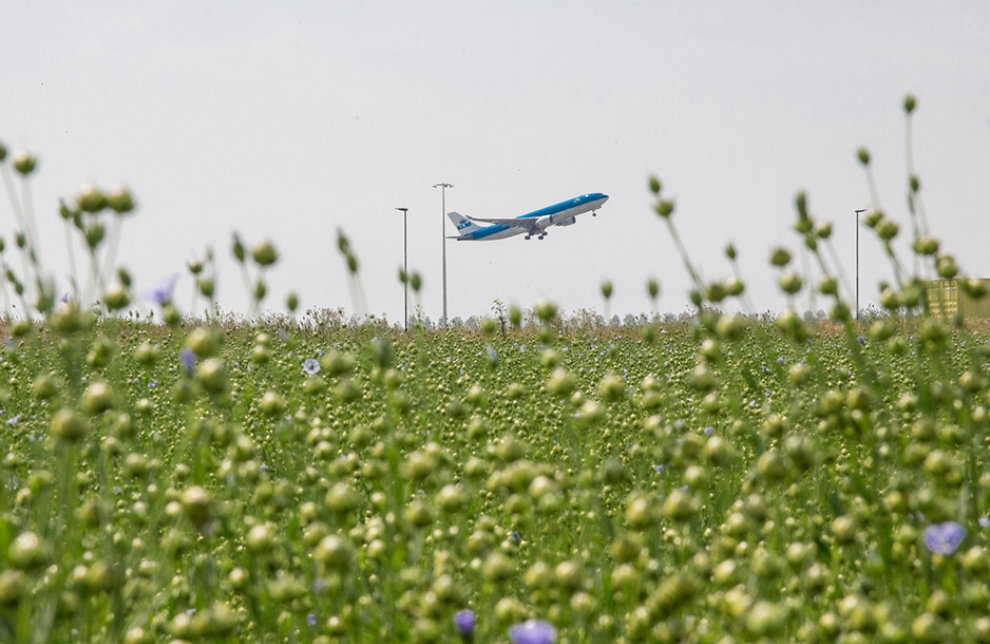Promoting more sustainable aviation: Destination: flying greener
Aviation is responsible for around 3% of global CO2 emissions, which means it has a big impact on the environment. As a facilitator of big emitters of fossil fuel gases, we are very aware of our responsibility in this area, which is why we are increasing the sustainability of our Dutch airports and joining with several different partners in exerting our influence to improve the sustainability of the entire aviation sector.

What the climate agreement means for aviation
The Paris Agreement includes a pledge to limit CO2 emissions. In addition to this, most ICAO (International Civil Aviation Organization) participating countries have made explicit agreements to halve the CO2 emissions from aircraft by 2050 in comparison with 2005. From 2020, airlines’ growth must be carbon neutral.
Aviation action plan for the Netherlands
Leading aviation companies and knowledge institutions in the Netherlands have a joined ambition to become the smartest and most sustainable players in the global aviation sector. With this, they specifically follow the coalition agreement. Royal Schiphol Group is one of the organisations that has drawn up the Aviation action plan for the Netherlands. The core of the action plan is the idea that a combination of Dutch cleverness, inventiveness and the close collaboration of all stakeholders, will further sustainability in the short, medium and long term.
Exerting our influence to make the chain more sustainable
We are not only making our own business operations more sustainable, but also motivating suppliers to improve their impact both within the chain and in terms of working conditions and the environment. We include sustainable conditions in our tenders, and we are increasingly able to offer our tenants sustainable buildings.
Flying on biofuel
Flying on cooking oil is hot! Kitchen waste that is reused and does not compete with food is a fantastic alternative to regular fuel. Of course, as an airport we do not use kerosene ourselves. However, together with home carrier KLM, biofuel supplier SkyNRG and several other partners, we encourage the large-scale use of biofuels in aviation.
Electric flight as an alternative
Several different companies are investigating the possibilities – and impossibilities – of electric flight. Hard on the heels of the success of the electric car, now it is the turn of electric aircraft. For the aviation sector, safety is an even bigger consideration, so we will have to wait some time for electric aircraft to take off.